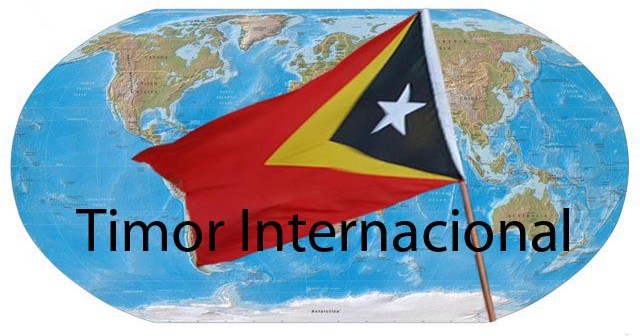 Updated Thu Oct 16, 2008 12:04pm AEST
Updated Thu Oct 16, 2008 12:04pm AESTEast Timor's President is calling for the state to sign an agreement, known as a 'concordata' with the Vatican, following his recent visit to the Holy See. The nation is 97 percent Catholic, and Jose Ramos-Horta strongly believes there will be no opposition to the proposal.
Presenter: Stephanie March
MARCH: Villagers in Soibada, in Manatotu district welcomed Jose Ramos-Horta with a performance of traditional Timorese music. The President spent a large part of his childhood living in the small mountain village. Despite the traditional welcome, the Presidential pilgrim was not returning to Soibada to celebrate the country's animist roots, but instead for the Catholic celebration of Our Lady of Aitara. He chose this visit to announce his plans for East Timor to sign a 'Concordata' with the Vatican. Portugal, the former colonial rulers of East Timor, is one of dozens of countries that have concordata's with the Holy See. While the agreements differ among countries, the principle is to provide formal recognition for the Catholic Church and give it certain privileges.
HORTA: In which first it provides, the government recognize the legal status of Churches in Timor-Leste. Now everyone takes for granted that the state recognize the churches, but there is stated, nothing written in law.
MARCH: While the draft concordata for East Timor is not yet complete, it's likely it will cement the Church's claim to large tracts of land and property, and allow it to develop education programs independently of the state. But President Ramos Horta says more importantly, it will ensure East Timor adopts in law the Vatican's views on abortion, and prostitution. The Catholic Church has always been highly influential in the country of one million people. The nation's constitution recognizes the valuable role of the church in the nation's 24-year struggle for independence from Indonesia.
HORTA: In any case only an atheist and an idiot would want to govern this country completely alienated from the church hierarchy and the church as a whole.
MARCH: He says Christianity is the reason the country has a strong national identity.
HORTA: Ninety seven percent of the people are Catholic, most are practicing, and one hundred percent are believers, and the church for them is the symbol of their belief. And they will listen first to the church before they listen to the sinful politicians.
MARCH: But almost a decade after independence, East Timor's leaders are still struggling to eradicate widespread poverty. The President believes the young nation can draw on the experience of the Catholic Church in areas like education, health care, and rural development to move the country forward.
HORTA: They have much more experience, so we are like youngsters, like students compared with the role of the church. So only an atheist and an idiot would not like to develop a strong relationship with the Church. This country cannot move forward, will only be stable if the two work together.
MARCH: He doesn't expect any resistance to the proposal. In 2005 the government led by Mari Alkatiri was criticized when the possibility of dropping religious education from the school curriculum sparked mass demonstrations against the state. But the president says Dr Alkatiri, secretary-general of the opposition party and an influential Muslim, was the first to suggest strengthening the state's relationship with the Vatican.
HORTA: One of the most misunderstood aspects of Mari Alkatiri was in regard to his stance on the role of the church, it is completely false that he was negative or antagonistic towards the church.
MARCH: It's no secret that President Ramos Horta is a deeply religious man. He almost died after being shot by a gang of armed rebels in February this year. While lying in a pool of blood on the road in front of his home waiting for an ambulance� he says he had an apparition. He says he heard a loud voice telling him it was not yet his time to die. Basilio do Nascimento is the Bishop the East Timor diocese of Baucau.He says the president's his experience has been received differently in Asia than it would be in European countries.
BASILIO: if you read the constitution of Portugal, France etc, it is very clear saying that the political man has no right to affirm his religious position, but here in Asia is different, and the religious side of the leader is very appreciated.
MARCH: Bishop Basilio says instead of being criticized for his affirmation, the President is admired because of it. Jose Ramos Horta agrees the experience only enhanced his ability to do his job.
HORTA: if anything, I realize that life is short, that life is beautiful, and god gave me a second chance for no other purpose other than to help my people and my country into the path of peace.
Source: Radio Australia



